Search
Search Results

Article
Monastic Orders of the Middle Ages
The monastic orders of the Middle Ages developed from the desire to live a spiritual life without the distractions of the world. Men and women who took religious vows were seeking a purity of experience they found lacking as lay people. Their...
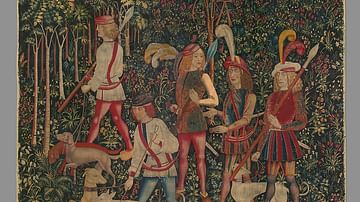
Article
Dogs & Their Collars in the Middle Ages
Dogs have played a prominent role in the lives of humans going back thousands of years and, more than any other domesticated animal, this role has remained relatively unchanged. In the present day, dogs serve as guardians, perform tricks...

Article
Trade Goods of the East India Company
The English East India Company (EIC) was founded in 1600, and it came to control both trade and territories in India, as well as a trade monopoly with China. Goods the EIC traded included spices, cotton cloth, tea, and opium, all in such...

Article
Christian Antisemitism in the Middle Ages & during the Reformation
Antisemitism is a modern term that describes prejudice and hostility to Jews and Judaism. The origins of Christian antisemitism in the gospels are based on the story of a 1st-century itinerant Jewish preacher, Jesus of Nazareth, in the Roman...
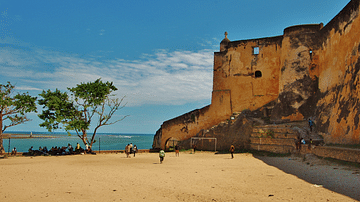
Article
The Portuguese in East Africa
The Portuguese first took an interest in East Africa from the beginning of the 16th century as their empire spread eastwards across the Indian Ocean. Trade in the region was already well-established and carried out by Africans, Indians, and...
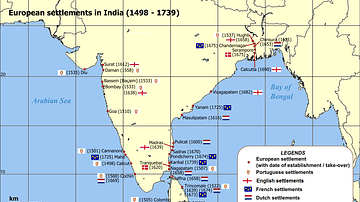
Article
The English and Dutch East India Companies' Invasions of India
In the early 17th century, the Dutch and English East India Companies turned their eyes towards India, as part of their grand schemes to develop extensive trade networks across the Indian and China Seas. They were faced with two significant...
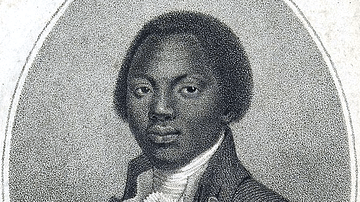
Article
Olaudah Equiano's Account of the Middle Passage
Olaudah Equiano (l. c. 1745-1797, also known as Gustavus Vassa) was an African of the Igbo village of Essaka, of the Kingdom of Benin (modern Nigeria), who was enslaved around the age of ten, bought his freedom around the age of 20, and became...

Article
Third Gender Figures in the Ancient Near East
In the ancient Near East, there was a social standard by which men were ideally expected to behave. In the 21st century CE, expectations still exist, albeit in different forms. Normative masculinity through ancient Mesopotamia typically concerned...
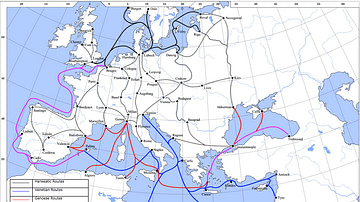
Collection
Trade in the Middle Ages
Peoples, cities and states have traded since antiquity but in the medieval period, things escalated so that goods travelled ever greater distances by land, river and sea. Great cities arose thanks to commerce and international trade such...
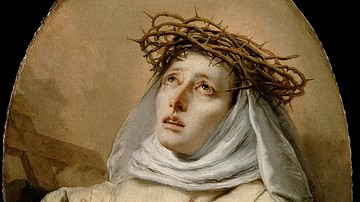
Image Gallery
A Gallery of 30 Influential Women from the Middle Ages
In this gallery, we showcase images of 30 influential women from the Middle Ages. Usually dated from c. 500 to c. 1500, this was a complex and transformative period in European history filled with political turmoil and dynamic social and...